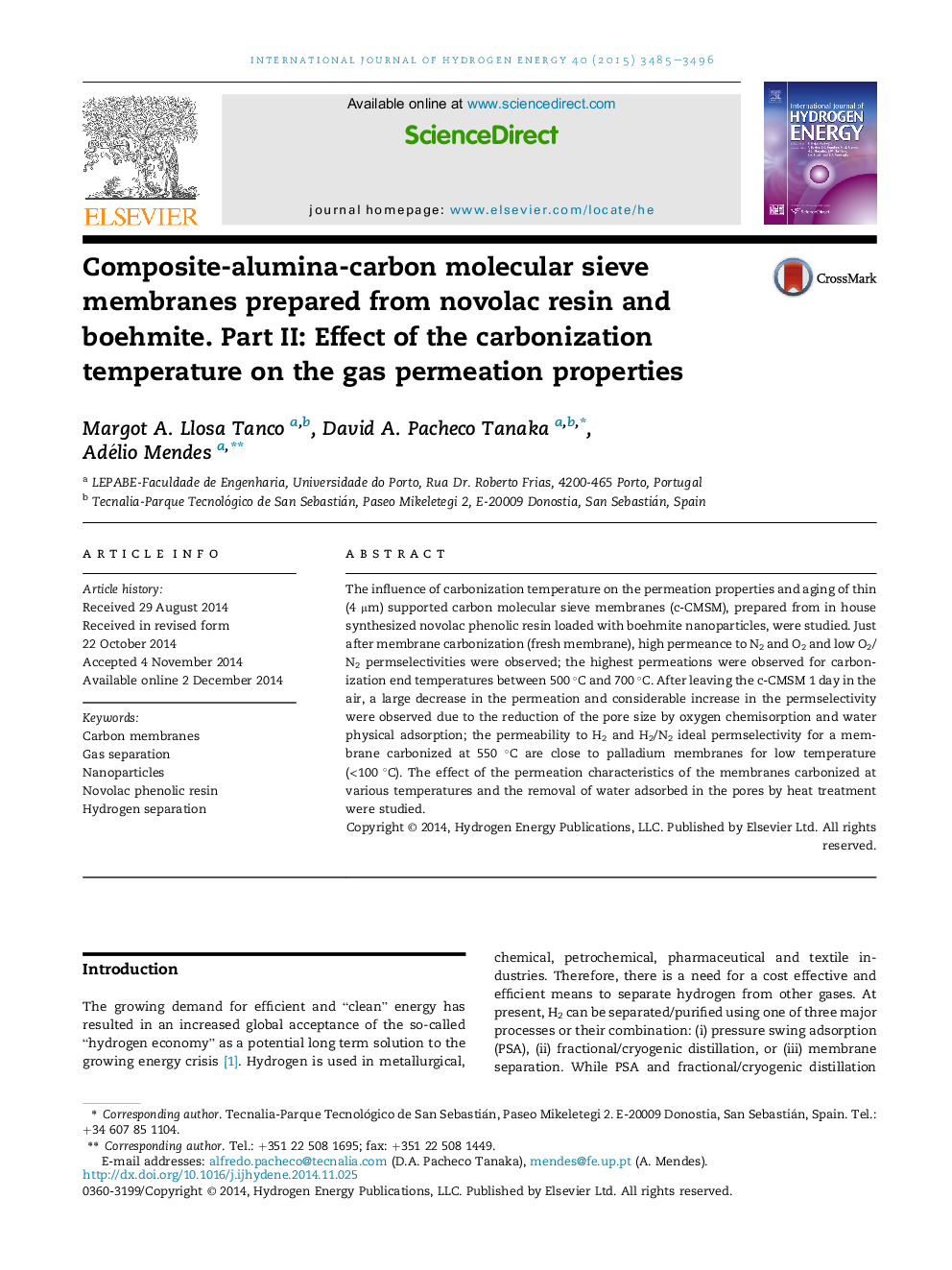| Article ID | Journal | Published Year | Pages | File Type |
|---|---|---|---|---|
| 1272044 | International Journal of Hydrogen Energy | 2015 | 12 Pages |
•Supported c-CMSM was prepared in a single coating-drying-carbonization step from novolac.•Effect of the carbonization temperature on the permeation characteristics of c-CMSM are studied.•From 700 °C the pores are small, the mechanism of permeation of gases is by molecular sieving.•For carbonization between 500 and 650 °C, good H2 permeation and H2/N2 selectivities are obtained.•Aging and activation of c-CMSM carbonized at different T was studied.
The influence of carbonization temperature on the permeation properties and aging of thin (4 μm) supported carbon molecular sieve membranes (c-CMSM), prepared from in house synthesized novolac phenolic resin loaded with boehmite nanoparticles, were studied. Just after membrane carbonization (fresh membrane), high permeance to N2 and O2 and low O2/N2 permselectivities were observed; the highest permeations were observed for carbonization end temperatures between 500 °C and 700 °C. After leaving the c-CMSM 1 day in the air, a large decrease in the permeation and considerable increase in the permselectivity were observed due to the reduction of the pore size by oxygen chemisorption and water physical adsorption; the permeability to H2 and H2/N2 ideal permselectivity for a membrane carbonized at 550 °C are close to palladium membranes for low temperature (<100 °C). The effect of the permeation characteristics of the membranes carbonized at various temperatures and the removal of water adsorbed in the pores by heat treatment were studied.
